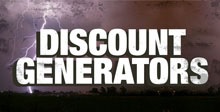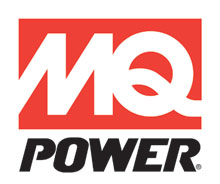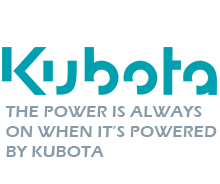Choosing The Right Generator Fuel Type
For many people, the first consideration when shopping for a generator is what type of fuel they would like to burn. Generators can be powered by gasoline, diesel, propane, natural gas, or solar energy. Some models allow you to switch between fuel types. Our customers have enjoyed the versatility of bi-fuel generators (dual fuel generators) and tri-fuel generators that are often referred to as hybrid fueled generators. Whatever your situation and power need, your fuel type will largely be dependent on some of the below considerations.
Bi-Fuel Generators (Hybrid or Dual Fuel)
Give yourself the option of multiple fuel types on a single generator. Bi-fuel (otherwise called dual fuel or hybrid fuel) generators provide solutions to fuel availability issues that invariably arise in times of crisis when you need a temporary emergency back up power source typically configured with the LP (propane) tank fueled generator. Dual fuel generators also give users options when the fuel storage or clean burning benefits of propane are preferred, while having the ability to utilize a more mobile free-standing generator for more routine applications with gasoline. This additional level of versatility has been very popular with our customers, affording them a valuable alternative with the flexibility to switch between propane and gasoline fuel sources and reasonably valued below the alternative of owning and operating both a gas and a propane generator of equivalent size.
| IMAGE | MODEL # | OUTPUT | FUEL | ENGINE | COMPLIANCE | STARTER | OPERATIONAL VOLUME | SPECIAL FEATURE |
 |
Cummins RSA13A | 13,000 | LP/NG | Cummins Air-Cooled, V-Twin, OHV | CARB Approved | Automatic | 65dB | Low Oil Shutdown Alert |
 |
Winco HPS6000HE | 5,500/6,000 | Gas/NG | Honda 1-Cylinder, OHV | 49 State Compliance | Electric/Recoil |
72dB |
Run Time: 9.9hrs @50% Ld |
Tri-Fuel Generators (Hybrid or Multi-Fuel)
Whether in crisis or in everyday commercial or residential use, the fuel you chose may result in you having power or not. Why not give yourself the option of multiple fuel types on a single generator? Furthermore, why settle with a rigid, unmovable conventional standby generator when you may require portability at some point. Tri-fuel (otherwise called hybrid-fuel or multi-fuel) generators provide solutions to fuel availability issues that invariably arise in times of crisis when you need a temporary emergency back up power source typically configured with the LP (propane) tank fueled generator. Tri-fuel generators give users options with mass fuel storage (by LP), unlimited natural gas provisions from public utilities, or clean burning benefits of natural gas and/or propane, and are preferred while having the ability to utilize a more mobile free-standing generator for routine applications with gasoline and on a non-rigid frame generator (such as a home standby). This additional level of versatility has been very popular with our customers, affording them a valuable alternative with the flexibility to switch between propane, natural gas, and gasoline fuel sources, the option with portability or to become as rigid as a conventional standby generator, and reasonably valued below the alternative of owning and operating concurrently gas, propane, and natural gas generators of equivalent size.
A tri-fuel generator is an ideal portable power solution for use in power failure as a standby for your furnace and sump pump, a weekend up at the lodge, your commercial application with continuous generator power needs, or for a simple home project.
Many aftermarket LP gas or natural gas conversions do not legally meet EPA emissions requirements. WINCO, who supplies our tri-fuel generators, has tested and certified the Home Power HPS9000VE and HPS12000HE for operation on gasoline, LP gas, and natural gas. WINCO's two tri-fuels have passed application reviews from Honda and Briggs & Stratton engineers allowing us to offer the 3-year engine warranties.
Do Not Forget: In a crisis, gasoline may be hard to locate with harsh traveling conditions. Gas stations likely are without power and/or supplies likely depleted. Gasoline, as well, does not store well, goes stale, gums up your carburetor, and is difficult and dangerous to store in large quantities. As a stand alone fuel source, gasoline may leave your generator inoperable without repairs. Tri-fuel generators solve this problem by operating on the common vapor fuels (as well as offering the ability to use gasoline as necessary). Natural Gas and Liquid Propane are usually available in large quantities even at times of crisis and natural disasters. Generally, switching between fuels is very easy. To operate on vapor fuels you simply turn off the gasoline fuel line, connect the proper t-valve fitting for the selected fuel and then connect the main fuel supply. Your tri-fuel generator is now capable of providing hours of uninterrupted generator power with adequate propane or natural gas fuel supply.
| IMAGE | MODEL # | OUTPUT | FUEL | ENGINE | COMPLIANCE | STARTER | RUN TIME | SPECIAL FEATURE |
 |
Winco HPS9000VE | 8,000/9,000 | LP/Gas/Natural Gas | Briggs & Stratton 16HP OHV | 49 State Compliance | Electric/Recoil | 7 hrs @50% Ld | 120/240V Receptacle |
 |
Winco HPS12000HE | 10,800/12,000 | LP/Gas/Natural Gas | Honda V-Twin OHV | 49 State Compliance | Electric | 14.5 hrs@50% | Steel Fuel Tank |
Propane Generators
Another option for fueling your generator is propane. Sometimes also referred to as liquid petroleum gas (LPG), propane requires a tank separate from the generator itself. These tanks can be the same kind used for fueling heaters and grills, or you can rely on a larger, stationary tank that must be periodically refilled by a service truck. Unlike gasoline and diesel, propane will not degrade in storage, so it is a viable option for people who rarely or sporadically use their generator. However, propane is less efficient than both gasoline and diesel, offering 91,300 BTUs per gallon. Propane generators are very popular for recreational use like camping, RV, and even emergency backup.
| IMAGE | MODEL # | OUTPUT | FUEL | ENGINE | COMPLIANCE | STARTER | OPERATIONAL VOLUME | SPECIAL FEATURE |
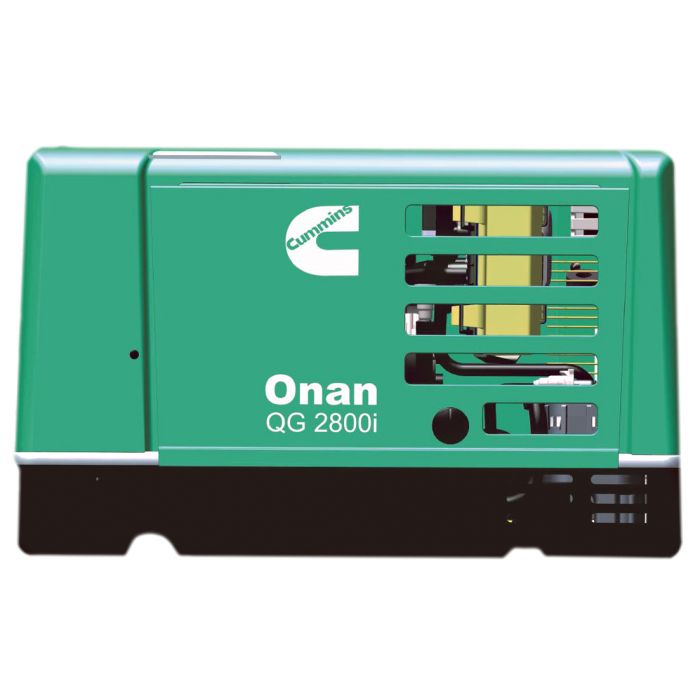 |
Cummins 2.5HGLAA-8304 | 2,500 | Propane | Cummins Air-Cooled, Single Cyliner, OHC | CARB Approved | Electric | 65dB @ 50ft | Low Oil Shutdown Alert |
 |
Cummins 5.5HGJAE-2144 | 5,500 | Propane | Cummins Air-Cooled, OHV, 90-degree V-Twin | CARB Approved | Electric | 69dB @ 10ft | Enclosed Spark-Arrestor |
Gasoline Generators
For most homeowners who need a generator for emergency or backup use, gasoline is the fuel of choice. Gas generators tend to be less expensive than other models, and most of the time fuel is readily available. However, gasoline-powered generators need to be refueled regularly, no matter what the weather is like, and gasoline may be difficult to acquire in case of a power outage or natural disaster.
Gas-powered generators require more upkeep and care than other fuel models. Gasoline is slightly more dangerous to store than diesel, as it has a lower flash point temperature. Gasoline also has a relatively low shelf life, and most blends begin breaking down or absorbing moisture within a month. Even gasoline that is several years old is viable, but it may contain elements that will break down or wear engine parts. If you plan to use your generator very infrequently, consider adding a fuel stabilizer or choosing a different type of fuel. Also, be aware that major power outages also affect local gas stations, so it may be difficult to refuel. There could also be fuel shortages due to high demand in your area. Gasoline is a more efficient fuel than propane or natural gas, but is less efficient than diesel, offering 125,000 BTUs per gallon (enough to heat an average sized room for 5 to 10 hours).
| IMAGE | MODEL # | OUTPUT | FUEL | ENGINE | COMPLIANCE | STARTER | FUEL CONSUMPTION | SPECIAL FEATURE |
 |
Cummins 4.0KYFA-6747 | 4,000 | Gas | Cummins Air-Cooled, Single Cylinder, OHC | CARB Approved | Electric | .5 @ 50% Ld | Auto Choke |
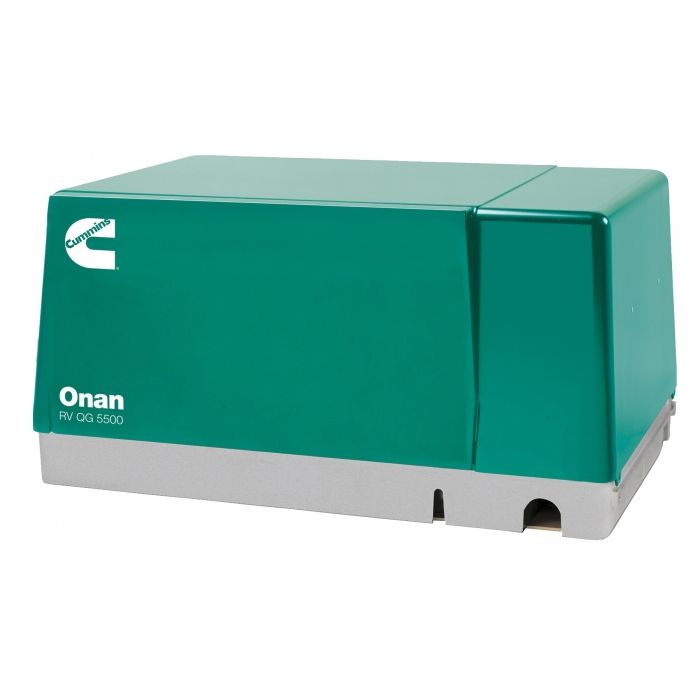 |
Cummins 5.5HGJAB-6755 | 5,500 | Gas | Cummins Air-Cooled, OHV, 90-degree V-Twin | CARB Approved | Electric | .6 @ 50% Ld | Auto Fuel Shutoff Valve |
Diesel Generators
Diesel generators require less upkeep and are more efficient than other fuel types. They are typically preferred for their efficiency and low maintenance. Most diesel generators provide more horsepower per gallon of fuel than comparable gas-powered generators. They can also run for years without maintenance. Although diesel generators have a reputation for being more durable than gas, if they are not run regularly they may be more prone to breaking down. Diesel generators are more expensive than comparable gas models but diesel is generally safer to store than gasoline, as it requires a higher temperature to ignite. Diesel has a longer shelf life than gasoline, lasting a few months before beginning to degrade. Like gasoline, diesel will burn even after years of storage, but it may degrade the workings of your engine. Diesel is the most efficient of generator fuels, offering 138,700 BTUs per gallon of fuel (enough to heat an average sized room for 6 to 12 hours).
| IMAGE | MODEL # | OUTPUT | FUEL | ENGINE | COMPLIANCE | STARTER | RUN TIME | SPECIAL FEATURE |
 |
Kubota GL7000 | 6,500/7,000 | Diesel | Kubota 2-Cylinder, Liquid-Cooled, Indirect Injection, Naturally Aspirated, .51L | CARB Approved | Choice @ Checkout | 19.4 @ 25% Ld | Sound-Attenuating Enclosure |
 |
Gillette GPED-65EK | 5,000/6,000 | Diesel | Kohler 1-Cylinder, Air-Cooled, Direct Injected | CARB Approved | Electric/Recoil | 10 hrs @ 50% Ld | Tubular Steel Enclosure |

